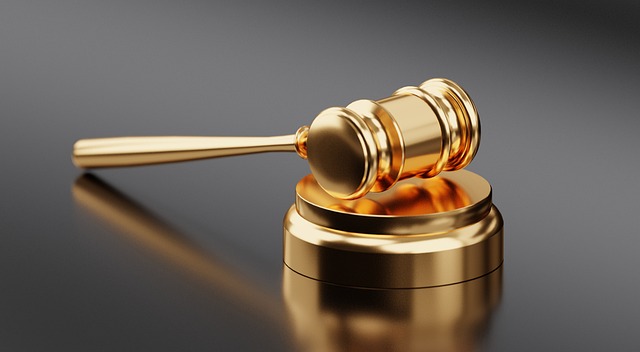Intellectual property (IP) law is essential for securing and protecting creative and inventive works, including through patents, copyrights, and trademarks. These legal instruments define how your work can be utilized, ensuring that unauthorized use is curtailed. Expert legal guidance is crucial in establishing these rights and in enforcing them in the courtroom should infringement occur. A specialized IP attorney with litigation experience is key to effectively navigate the complexities of patent, copyright, and trademark laws, particularly when defending against IP violations. Proactive measures and swift action are necessary when facing infringement; your legal team will work to halt unauthorized use through injunctions and seek compensation for any losses incurred. The goal is to protect your property rights, uphold your ownership claims, and establish a formidable reputation for IP defense within the industry, thereby deterring future infringements.
safeguarding intellectual property (IP) is a critical step for creators and inventors to protect their innovative works. This article delves into the essential aspects of IP representation, guiding you through the legal framework that underpins such protection. From understanding your rights to choosing expert legal counsel capable of navigating IP courtrooms, this comprehensive guide will equip you with strategies for enforcement, ensuring your property remains secure against infringement. Embark on a journey to safeguard your creations with reliable IP representation and a thorough grasp of the law.
- Navigating Intellectual Property Rights: The Cornerstone of Protecting Your Creation
- Understanding the Legal Framework: How to Secure Your Inventions and Works under IP Law
- Choosing the Right Representation: The Significance of Expertise in Intellectual Property Courtrooms
- Strategies for Enforcement: Defending Your Property in the Event of Infringement
Navigating Intellectual Property Rights: The Cornerstone of Protecting Your Creation

Navigating the complex landscape of intellectual property rights is a pivotal step in safeguarding your creations. The law provides a comprehensive framework for protecting inventions, artistic works, and proprietary information through patents, copyrights, and trademarks. Recognizing the right type of protection for your creation is essential; it determines how your work can be used, shared, and monetized. Engaging with legal professionals who specialize in intellectual property (IP) law ensures that your rights are properly established and enforced. They serve as a bridge between your innovation and the courtroom, should there be any infringement or dispute, advocating on your behalf to defend your interests and maintain the integrity of your work within the legal system.
In the realm of IP representation, reliability is paramount. A robust legal strategy not only involves securing the necessary protections but also staying abreast of evolving laws and regulations that could impact your property’s standing. As new technologies and creative endeavors emerge, so too do the complexities in their legal protection. Reliable IP representation provides peace of mind by offering a proactive defense against unauthorized use or exploitation of your intellectual assets. With skilled legal counsel, you can navigate this intricate domain with confidence, knowing that your creations are under the guardianship of a meticulous and experienced team ready to represent your interests in court if necessary.
Understanding the Legal Framework: How to Secure Your Inventions and Works under IP Law

When safeguarding your inventions and works, it’s crucial to navigate the intricate web of intellectual property (IP) law. The legal framework governing IP is designed to protect your property rights and ensure that your creations remain your own. This includes understanding the various types of IP such as patents, copyrights, and trademarks, which offer different levels of protection depending on the nature of the work or invention. For instance, a patent grants the inventor exclusive rights to manufacture, use, or sell the invention for a limited period, while copyright law protects original works like literature, music, and software from unauthorized distribution or reproduction. Understanding these protections is paramount as they define the legal boundaries within which your property operates. In the event of infringement, the courtroom serves as the decisive forum where the validity of IP rights is upheld and enforced. Here, the law is interpreted and applied, providing a formal mechanism to protect your intellectual assets against unauthorized use or copying. It’s through the careful application of these legal tools that inventors and creators can secure their property against infringement, ensuring their innovations and creations receive the recognition and protection they deserve under the law.
Choosing the Right Representation: The Significance of Expertise in Intellectual Property Courtrooms

When safeguarding your creations, the choice of intellectual property representation is pivotal to ensuring that your rights are effectively upheld. Expertise in intellectual property law within courtroom settings is not just advantageous; it’s imperative. A seasoned attorney who possesses a deep understanding of IP litigation and the nuances of courtroom procedures can navigate the complexities of patent, copyright, and trademark laws with finesse. They are adept at interpreting legal precedents and leveraging them to your advantage, which is crucial for securing favorable outcomes in disputes over property rights. In the realm of IP law, the distinction between a competent advocate and an expert one can significantly impact the protection and enforcement of your intellectual assets. Therefore, when selecting representation for your IP matters, it’s wise to prioritize professionals with a proven track record in the courtroom, as their expertise could be the difference between maintaining control over your creations and facing unlawful exploitation. Their experience not only guides you through the legal process but also acts as a strategic asset in safeguarding your innovations, designs, or artistic works from infringement.
Strategies for Enforcement: Defending Your Property in the Event of Infringement

In the realm of intellectual property (IP), proactive strategies for enforcement are paramount in safeguarding your creations against infringement. A robust defense begins with securing legal protection through patents, copyrights, or trademarks. These legal instruments provide a foundation upon which you can build a case in the event of an infringement. When an unauthorized party uses your property without consent, promptly consulting with an IP attorney is essential to initiate enforcement actions. They will guide you through the process of issuing cease-and-desist letters or pursuing litigation if necessary, both critical steps in protecting your rights in a courtroom setting.
Upon identifying infringement, it is imperative to act swiftly and decisively. The courtroom serves as the ultimate arbiter in IP disputes, where evidence of your ownership and the infringement must be clearly presented. Surveillance and documentation of the misuse are crucial elements that bolster your case. In the event of a lawsuit, your legal representation will argue for injunctions to prevent further infringement and seek damages for losses incurred. The goal is to ensure that your property is not only protected but also respected within the industry, deterring future infringements through a clear demonstration of your commitment to defending your IP.
When it comes to safeguarding your creations, a robust intellectual property (IP) strategy is indispensable. This article has illuminated the critical steps in navigating IP rights, understanding the legal framework that governs such protections, and selecting proficient representation with expertise in IP law and courtroom dynamics. It is clear that a proactive approach to enforcement strategies is essential for defending your property against infringement. By implementing these measures, you can fortify your position as the rightful owner of your inventions and works, ensuring that your intellectual property receives the protection it deserves. Remember, in the realm of innovation, knowledge is power—know your rights, secure your creations, and uphold your legal standing with competent IP representation.
